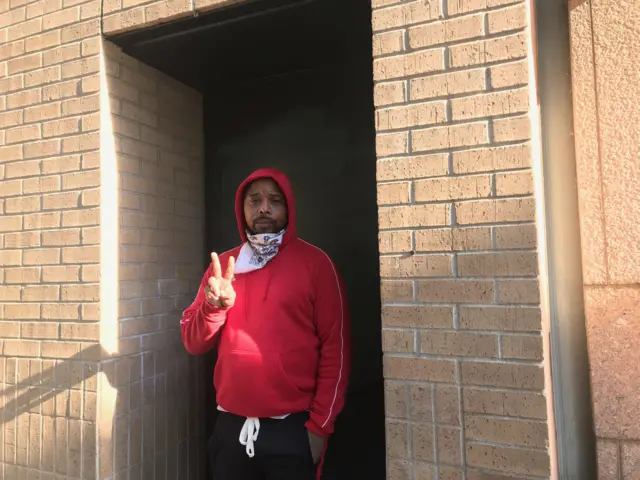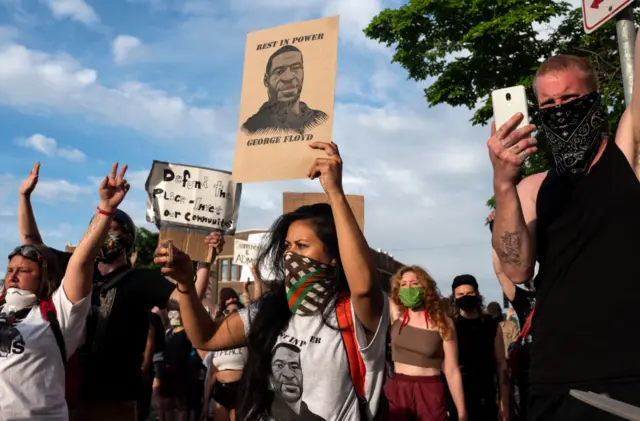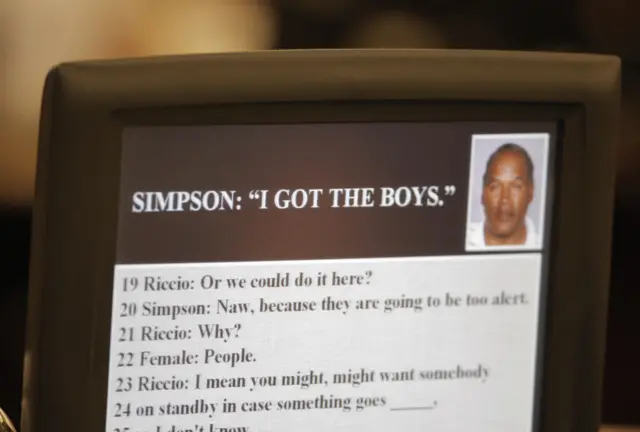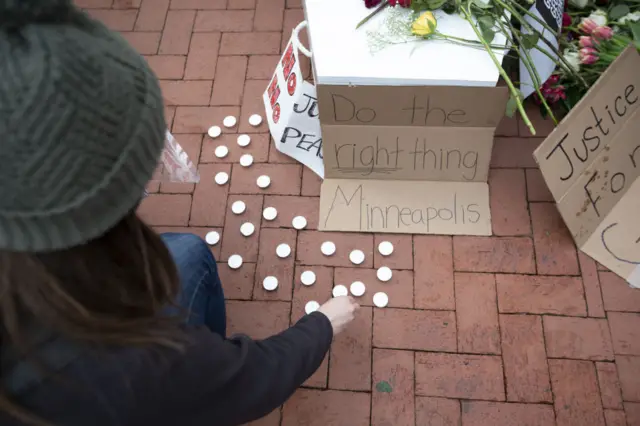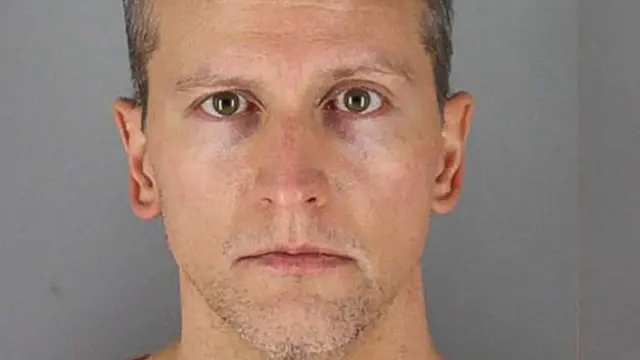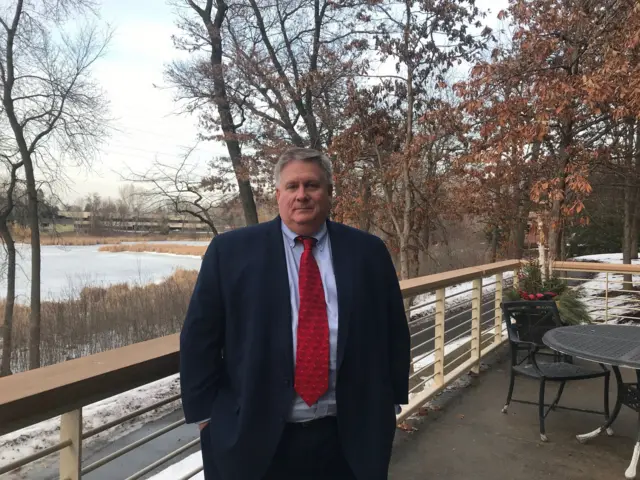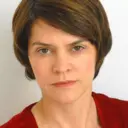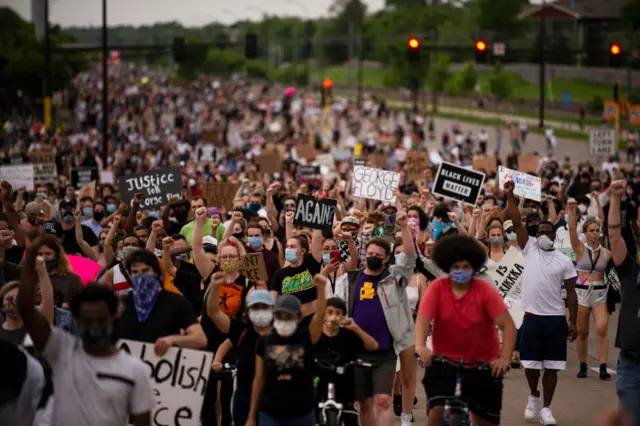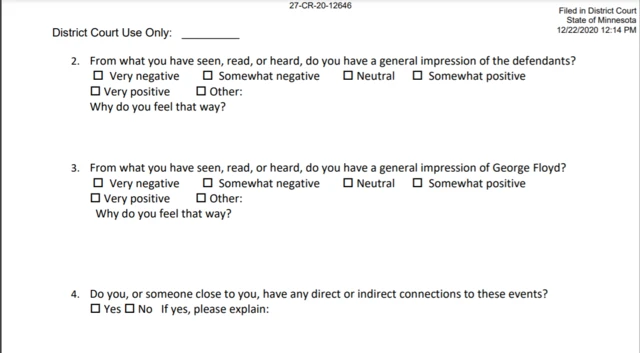Juror One has been dismissedpublished at 16:04 GMT 9 March 2021
After some discussions between attorneys, Juror One has been dismissed.
A nursing assistant from Mexico, she explained her initial response to receiving the pre-trial questionnaire for potential jurors was: "Why me?"
After she expressed concern about her fluency in English, Chauvin's attorney Eric Nelson asked a series of questions about her proficiency, sometimes needing to rephrase or repeat what he meant.
She also told the defence that she solicited the help of her husband and translation tools to fill out the questionnaire.
The exchange convinced the defence to dismiss the woman "primarily based on language proficiency".
Announcing the decision, Judge Cahill noted it was not really about the language.
"It was more that she's not a sophisticated juror... given that there was some concern about lack of understanding of legal terms."

